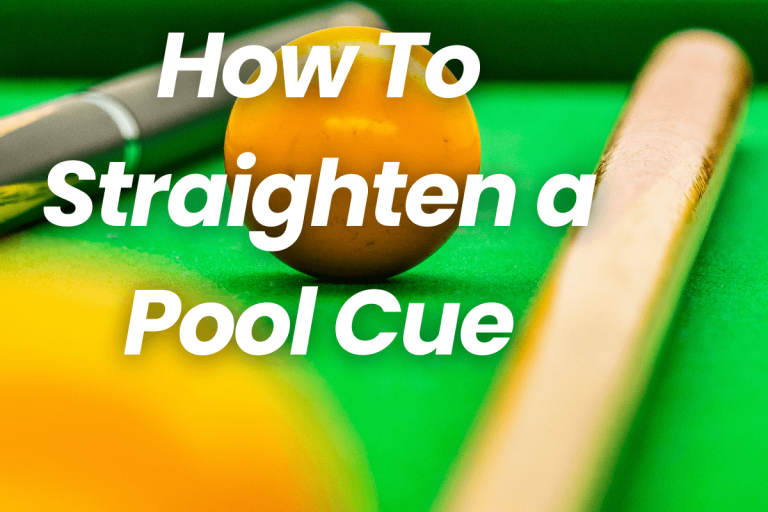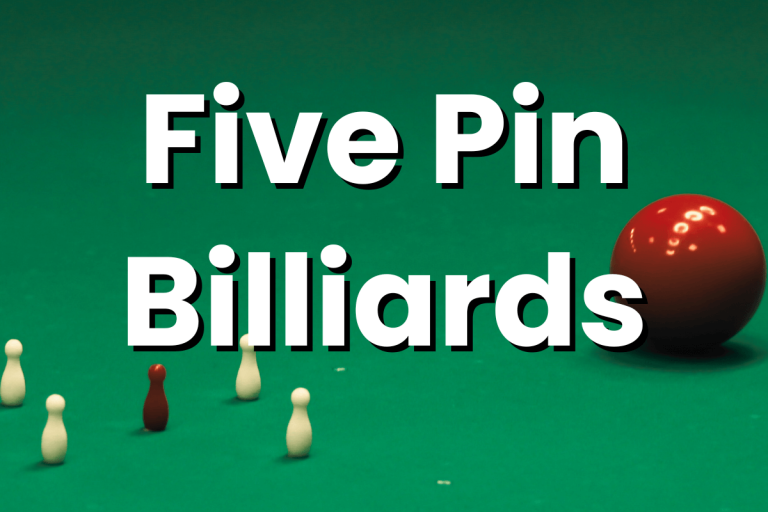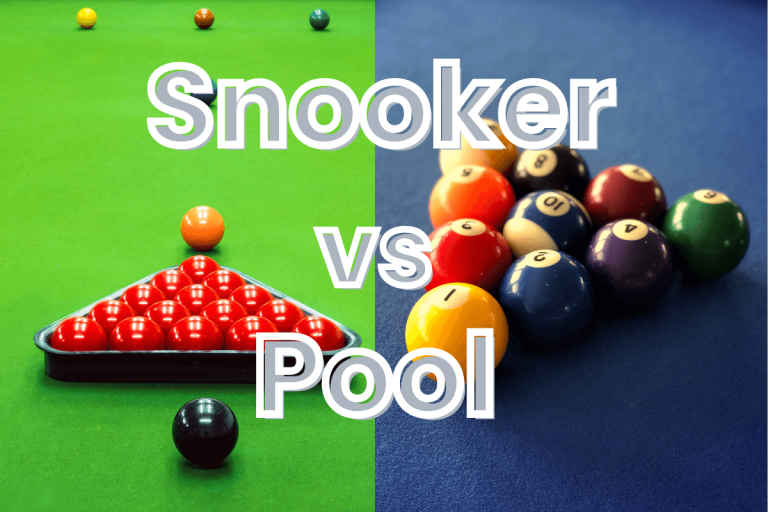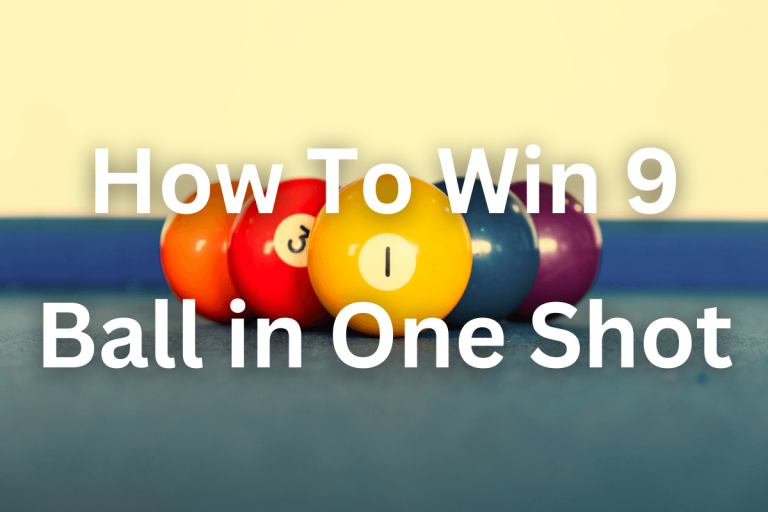Understanding Pool Cue Weight for Best Performance! (2024)
The pool cue weight is one of the most important factors that can affect your game. A cue that is too heavy can be difficult to control, while a cue that is too light can make it difficult to generate power. The ideal cue weight will vary depending on your playing style and preferences.
Pool cues average around 58 inches (147.3 cm) long, are commonly available in 17–21 ounces (0.48–0.60 kg) weights, with 19 ounces (0.54 kg) being the most common, and usually have a tip diameter in the range of 9 to 14 mm.
In this guide, I will discuss the factors that affect pool cue weight, how to choose the right weight for your game, and how to care for your cue to maintain its weight. I will also share some personal experiences and real-life examples to help you understand the importance of cue weight.
So whether you are a beginner or a seasoned pool player, I encourage you to read on and learn everything you need to know about pool cue weight.
What are the ideal pool cue weights?
The ideal weight of a pool cue plays a pivotal role in a player’s performance, striking a balance between control and power in every shot. Generally, pool cues are available in weights ranging from 18 to 21 ounces. Players often choose a cue weight based on personal preference and playing style, influenced by factors such as arm strength, precision requirements, and the type of game being played.
For beginners, a mid-range weight of around 19 to 20 ounces is recommended, offering a good mix of control and power without favoring one excessively over the other. This weight range helps new players develop a feel for their shots and understand how different weights impact their game.
Advanced players might opt for a lighter cue (18-19 ounces) for enhanced control and finesse, especially in games requiring delicate touch and precise spin. Conversely, a Medium-weight cue (20-21 ounces) may be preferred by players seeking more power behind their break shots or those with a more aggressive playing style.
Selecting the ideal pool cue weight is a personal choice that can significantly affect gameplay. Experimenting with various weights can provide valuable insight into what best suits an individual’s technique and preferences, contributing to improved performance and greater enjoyment of the game.
How to Choose the Right Cue Weight for Your Game?
Choosing the right cue weight for your game is essential for maximizing your performance on the pool table. Here’s a step-by-step guide to help you make the right decision:
- Consider Your Playing Style: Assess your playing style and preferences. Are you more focused on finesse shots and precise control, or do you prefer power shots and aggressive play? Your playing style will influence the ideal cue weight for you.
- Evaluate Your Strength and Comfort: Take into account your physical strength and comfort level. Lighter cues (18-19 ounces) require less effort to maneuver and are suitable for players who prioritize finesse and control. Medium-weight cues (19-21 ounces) offer a balance of control and power, while heavier cues (22-25 ounces) provide more power and are preferred by players who rely on forceful shots.
- Experiment with Different Weights: Try cues of varying weights to determine which one feels most comfortable and effective for your game. Many pool halls and specialty shops allow you to test out different cues before making a purchase.
- Consider Cue Balance: Pay attention to the balance of the cue. A well-balanced cue distributes weight evenly throughout the cue, enhancing stability and control during shots.
- Seek Expert Advice: Don’t hesitate to seek advice from experienced players, coaches, or cue technicians. They can offer valuable insights and recommendations based on your playing style and skill level.
- Trust Your Instincts: Ultimately, trust your instincts and choose the cue weight that feels right for you. Your comfort and confidence with the cue are paramount to your success on the table.
What Factors Affect Pool Cue Weight?
The weight of a pool cue is affected by some factors, including:
- The materials used: The materials used to make a pool cue can affect its weight. For example, a cue made from wood will typically be lighter than a cue made from carbon fiber.
- The length of the cue: The length of a pool cue can also affect its weight. A longer cue will typically be heavier than a shorter cue.
- The tip: The tip of a pool cue can also affect its weight. A larger tip will typically be heavier than a smaller tip.
- The player’s personal preferences: The player’s personal preferences will also affect the weight of the cue they choose. Some players prefer a heavier cue, while others prefer a lighter cue.
How to Care for Your Cue to Maintain Its Weight?
Once you have chosen the right cue weight, it is important to take care of your cue to maintain its weight. This means avoiding hitting the cue too hard and storing it in a cool, dry place. If you take care of your cue, it will last for many years to come.
Here are some tips for caring for your cue to maintain its weight
- Avoid hitting the cue too hard: Hitting the cue too hard can cause the cue to warp or break, which can affect its weight.
- Store the cue in a cool, dry place: Storing the cue in a cool, dry place will help to prevent the cue from warping or cracking.
- Inspect the cue regularly: Inspect the cue regularly for any signs of damage, such as warping or cracking. If you notice any damage, have the cue repaired or replaced.
Here are some Best Billiard Stick Weight Rings…
Conclusion
In the enthralling world of billiards, cue weight is the unsung hero behind every precise shot and strategic move. By understanding the factors affecting cue weight and choosing the right weight for your game, you’ll unlock new levels of cue ball mastery. Remember to care for your cue diligently, preserving its weight for consistent performance. As we’ve seen through personal experiences and real-life examples, cue weight can be the game-changer you need to elevate your billiards journey. So, fellow cue artists, armed with this knowledge, let’s embark on a cue-tastic adventure of perfect shots and exhilarating victories!
FAQs
FAQ 1: Why does pool cue weight matter in billiards?
Ah, the age-old cue weight conundrum! Picture this: a cue that feels too heavy, throwing off your shots, or one that’s too light, lacking power. The truth is, that pool cue weight is the secret ingredient to cue ball mastery. A well-balanced cue weight enhances control, precision, and spin, unleashing your true potential on the table. Imagine my journey, struggling with cue weight until I found my perfect match, and how it transformed my game! So, embrace the cue weight quest, my friend, and witness the magic of finding the weight that elevates your shots to victory.
FAQ 2: How can I determine the right cue weight for my playing style?
The art of cue weight selection! It’s like finding the perfect partner for your dance on the table. Your playing style holds the key to this cue-tactic puzzle. If you’re into finesse and delicate shots, a lighter cue might be your perfect match. On the other hand, power players seeking that strong stroke may favor a heavier cue. My journey of experimentation and expert advice taught me that the right cue weight aligns with your style, like a cue ball and pocket – a match made in billiards heaven!
FAQ 3: Can adjusting cue weight improve my game?
Absolutely! Cue weight customization is like adding a secret ingredient to your cue’s recipe. Imagine this: you’re playing in a high-stakes tournament and need that extra edge. The ability to adjust your cue weight, say with removable weight bolts, allows you to fine-tune your game. Whether you need more finesse or power for specific shots, cue weight alteration can be your game-changer. Like my journey, where a slight weight adjustment transformed my shots and confidence, you too can find the cue weight sweet spot that brings victories and cue ball artistry!
FAQ 4: What are the advantages of using a heavier pool cue?
Heavier pool cues (22-25 ounces) can provide more power and stability, making them ideal for players who prefer forceful shots and break shots. Additionally, some players find that heavier cues offer better control over the cue ball on long shots.
FAQ 5: Are there any disadvantages to using a lighter pool cue?
While lighter pool cues (18-19 ounces) offer increased maneuverability and finesse, they may lack the power and stability of heavier cues. Players who rely on strength and forceful shots may find lighter cues less suitable for their playing style.







